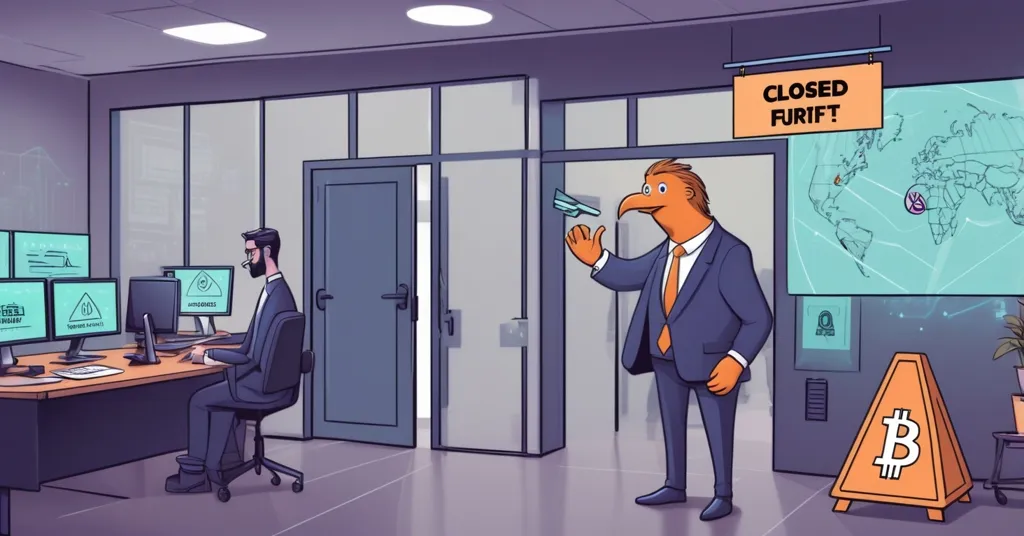Harpie Closes Shop: Crypto Security Firm Falls to Unsustainable Model, Plans Asset Transfer

Harpie Shuts Down: Unsustainable Business Model Leads to Crypto Security Firm’s Closure and Asset Transfer Plans
Harpie, the crypto security firm dedicated to preventing wallet theft and hacks, has announced its closure, marking a significant moment in the crypto security landscape. Despite backing from industry giants, the firm struggled to maintain a sustainable financial model.
- Harpie shuts down due to unsustainable business model
- Plans to develop utility for asset transfer and honor rewards
- Closures reflect broader challenges in crypto and NFT sectors
On March 27, Harpie officially announced its shutdown via an X thread, stating that while its mission was to create a “theft-free crypto ecosystem,” the business model struggled to generate enough revenue to sustain operations. Harpie’s investors included heavyweights like Coinbase Ventures, OpenSea, and Dragonfly Capital, the latter leading a $4.5 million investment round in 2021.
Initially, Harpie charged a 7% fee on recovered assets (assets held securely by Harpie), but as the crypto winter set in, they shifted to a fixed 0.01 ETH fee per recovered asset in an attempt to stay afloat. However, these adjustments were not enough. Harpie’s business model was like trying to sell ice to Eskimos – it just didn’t add up. Post-shutdown, Harpie instructed users to disconnect their wallets from the Harpie RPC (Remote Procedure Call) to prevent failed transactions and announced plans to develop an asset transfer utility. They also committed to honoring outstanding rewards from their Season 1 giveaways, a small consolation for loyal users.
The closure of Harpie is part of a broader wave of struggles within the crypto and NFT sectors. LG Electronics recently shut down its NFT platform, LG Art Lab, shifting away from the digital art space. Similarly, Kraken closed its NFT marketplace, and Nike’s RTFKT venture also ceased operations. These closures come amidst a stark decline in NFT trading volumes, which have plummeted from a peak of $3.24 billion, equivalent to the GDP of a small country, in August 2021 to under $100 million per week recently, with a 60% drop in February alone.
The challenges faced by Harpie and others underscore the difficulties of monetizing security services in a decentralized environment. In a world where users often prefer self-custody over third-party solutions, creating a sustainable business model remains elusive. Yet, the broader implications for the crypto security sector are clear: innovation and adaptability are crucial for survival.
Despite the gloom, it’s worth noting that some NFT collections, like Pudgy Penguins and Doodles, have shown resilience, suggesting pockets of opportunity even in a cooling market. Additionally, the rise in the average price of Bitcoin NFTs, from $63.45 in 2023 to $633.24 in Q1 2025, indicates that there are still niches within the sector that are thriving.
Looking forward, the future of crypto security might lie in emerging technologies like decentralized identity systems or blockchain-based decentralized storage solutions such as Filecoin and Storj. And let’s not forget the looming threat of quantum computing, which could pose new challenges to blockchain security.
Yet, amidst these challenges, the spirit of decentralization, freedom, and disruption remains alive. Harpie’s story is a reminder that while the path to a “theft-free crypto ecosystem” is fraught with obstacles, the mission to protect users and foster a secure environment is one worth pursuing, even if it means pivoting and innovating along the way.
Key Takeaways and Questions
- What led to Harpie’s shutdown?
Harpie shut down due to an inability to establish a sustainable business model despite attempts to adjust its revenue strategies.
- What are the broader implications of Harpie’s closure for the crypto security sector?
Harpie’s closure highlights the ongoing challenge of monetizing security services in a decentralized environment, where users prefer self-custody over third-party solutions.
- How has the NFT market been performing recently?
The NFT market has seen a significant decline, with trading volumes dropping from $3.24 billion in August 2021 to under $100 million per week recently, and a 60% drop in February.
- What steps has Harpie taken to support its users post-shutdown?
Harpie instructed users to disconnect their wallets from the Harpie RPC and plans to develop an asset transfer utility. They will also honor outstanding rewards from their promotional campaigns.
- What other companies have recently closed down in the crypto and NFT spaces?
LG Electronics closed its NFT platform, LG Art Lab, Kraken shut down its NFT marketplace, and Nike’s RTFKT NFT venture also closed its operations.



